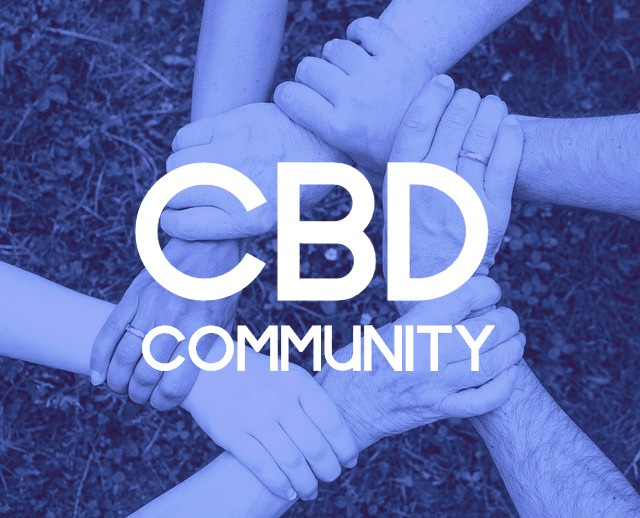Last updated on 20 October 2021
How To Treat Insomnia With CBD
Have you ever been awake for long hours at night unable to get sufficient sleep? Instead, you keep tossing on your bed trying to catch some sleep to no avail. High chances are that it might be insomnia. According to medical experts, insomnia is the inability to fall asleep. This sleep disorder has affected a large part of the world’s population.
Consequently, it leads to lethargy, daytime sleepiness and generally feeling unwell, physically and mentally. Besides, it can possibly lead to chronic diseases. Some of the causes of insomnia include the following:
- Hormones, for instance, estrogen
- Sleeping near a snoring person
- Genetic conditions
- Parasites
- Overactive mind
- Pregnancy
- Psychological issues like depression, bipolar and psychotic disorders
- Medical conditions-acid reflux disease, chronic pain, heart failure,
- Alzheimer’s diseases.
- Circadian rhythm disruptions
Below is a video about CBD for insomnia.
What is Insomnia?
Insomnia as a sleep disorder comes with its discomfort. Apart from denying you some precious sleep, it has a major impact on your health. Therefore, seeking the necessary treatment will do you some great good. Fortunately, there are a number of treatment plans that are quite efficient. But to really put insomnia and its frustration away, CBD will be a significant acquisition.
Why Use CBD to Treat Insomnia?
Cannabidiol (CBD) is a cannabinoid, a compound found in cannabis. Despite being a cannabis extract, it is deprived of any psychotropic properties, unlike THC. This cannabis compound has been found to treat a number of diseases. This has been facilitated by the number of chemical properties it has. They include calming1, anti-inflammatory2 and antipsychotic3 properties. These properties are essentials in combating insomnia through minimizing symptoms that bring difficulty in sleeping. With reduced anxiety and pain, you will be able to sleep soundly.
Melatonin
Melatonin is a hormone produced by a pea-sized gland in the middle of our brain called the pineal gland. This hormone regulates our circadian rhythm to fall in line with the daytime and the evening. When it gets dark outside, the pineal gland gets activated by the suprachiasmatic nucleus which is located in the hypothalamus. Melatonin levels then begin to rise which causes you to feel sleepy.
If you are not in a dark environment or you are watching TV, your brain will think that it’s still daytime. Even the blue light emitted from smartphones can inhibit the production of Melatonin. People all over the world use Melatonin to help get to sleep at night, however, taking melatonin alone doesn’t always work for everyone4.
CBD + Melatonin
While CBD does not induce sleep, it can positively affect sleep quality through various effects in the body. This, in any case, is the claim of a study conducted in an animal model5. Anxiolytic6 and antipsychotic7 effects can help reduce subconscious and emotional stress. The anticonvulsant effect reduces muscular tension. CBD supports the relaxation of the body.
Melatonin, on the other hand, primarily acts as a sleep inducer. An increasing concentration of this hormone in the blood initiates the resting phase in the body.
What are the Benefits of Using CBD to Treat Insomnia?
Many people with insomnia prefer using CBD as a remedy for lack of sleep. There are a number of benefits that make it the most beneficial treatment plan. This is because CBD does the following:
What are the Side Effects of Using CBD to Treat Insomnia?
CBD is a safe natural chemical substance with little side effects. However, like any treatment, some patients feel side effects. Some of these include dry mouth, low blood pressure, lightheadedness, and drowsiness.
Thankfully, drinking plenty of water can help with the dry mouth situation. At high doses, CBD can hinder the productivity of other medicines by affecting the liver enzymes. This is considered a side effect but can be avoided or easily reversed by adjusting dosages.
To be fully informed on the possible side-effects of CBD oil, read our guide here.
CBD Dosage for Insomnia
In the case of sleep disorders, an improvement is often already perceived with a microdose, taken regularly. In order to determine the individually optimal dosage, we recommend the Step-Up method according to Leinow and Birnbaum11. It starts with a low dose, which is gradually increased until the desired effect is achieved.
To learn how to correctly dose your CBD, read our CBD dosage guide.
How can I use CBD to Treat Insomnia?
Sleep is the body’s most important regenerative process. Countless physical and mental illnesses are associated with sleep disorders. A combination of Melatonin and CBD can help with problems of getting in and staying asleep. It creates ideal conditions for healthy and restful sleep. One bottle usually contains 30 ml tincture and is enough for 30-50 applications.
Studies On CBD For Insomnia
The increased number of Insomnia cases has spurred the need for a lasting solution. As a result, has led to a number of studies dedicated to handling this sleep disorder. Some of the studies include the following:
Endocannabinoid Signaling Regulates Sleep Stability
Cannabis, Cannabinoids, and Sleep: A Review Of The Literature
CBD, a constituent of Cannabis sativa, modulates sleep in rats
A patent published in 2017 describes CBD as an effective treatment for night snoring caused by Doose syndrome12.
A case study from the USA speaks for CBD as a safe method to reduce anxiety and improve sleep. The patient was a 10-year-old girl suffering from sleep disorders as a result of post-traumatic stress13.
Suggested reading: Natural remedies for Narcolepsy
References
- Shannon, Scott, et al. „Cannabidiol in Anxiety and Sleep: A Large Case Series.“ The Permanente journal 23 (2019). [↩]
- Nagarkatti, Prakash, et al. „Cannabinoids as novel anti-inflammatory drugs.“ Future medicinal chemistry 1.7 (2009): 1333-1349. [↩]
- Bhattacharyya, Sagnik, et al. „Opposite effects of Δ-9-tetrahydrocannabinol and cannabidiol on human brain function and psychopathology.“ Neuropsychopharmacology 35.3 (2010): 764. [↩]
- Turek, Fred W., and Martha U. Gillette. „Melatonin, sleep, and circadian rhythms: rationale for development of specific melatonin agonists.“ Sleep medicine 5.6 (2004): 523-532. [↩]
- Murillo-Rodríguez, Eric, et al. „Cannabidiol, a constituent of Cannabis sativa, modulates sleep in rats.“ FEBS letters 580.18 (2006): 4337-4345. [↩]
- Crippa, José Alexandre S., et al. „Neural basis of anxiolytic effects of cannabidiol (CBD) in generalized social anxiety disorder: a preliminary report.“ Journal of Psychopharmacology25.1 (2011): 121-130 [↩]
- Bhattacharyya, Sagnik, et al. „Opposite effects of Δ-9-tetrahydrocannabinol and cannabidiol on human brain function and psychopathology.“ Neuropsychopharmacology 35.3 (2010): 764 [↩]
- Borys, Henry K., Glynnis B. Ingall, and Ralph Karler. „Development of tolerance to the prolongation of hexobarbitone sleeping time caused by cannabidiol.“ British journal of pharmacology 67.1 (1979): 93-101. [↩]
- Costa, Barbara, et al. „The non-psychoactive cannabis constituent cannabidiol is an orally effective therapeutic agent in rat chronic inflammatory and neuropathic pain.“ European journal of pharmacology 556.1-3 (2007): 75-83. [↩]
- Martín-Moreno, Ana María, et al. „Cannabidiol and other cannabinoids reduce microglial activation in vitro and in vivo: relevance to Alzheimer’s disease.“ Molecular pharmacology 79.6 (2011): 964-973. [↩]
- Leinow,, L. and Birnbaum, J. (2017). CBD: A Patient’s Guide to Medicinal Cannabis. North Atlantic Books. [↩]
- Guy, Geoffrey, et al. „Use of cannabidiol in the treatment of nocturnal snoring.“ U.S. Patent Application No. 15/519,244. [↩]
- Shannon, Scott, and Janet Opila-Lehman. „Effectiveness of cannabidiol oil for pediatric anxiety and insomnia as part of posttraumatic stress disorder: a case report.“ The Permanente Journal 20.4 (2016): 108 [↩]
Author
With close to two decades of successful stint in the Media industry, I felt I was surely missing a piece in my life puzzle. I took a break and set out to seek the purpose of my life. I travelled, lived out of a suitcase, let things flow into life without resisting, and after five challenging years, I found my rhythm. I love to write about Cannabis and Health and try my best to simplify esoteric concepts into simple ideas for life.







